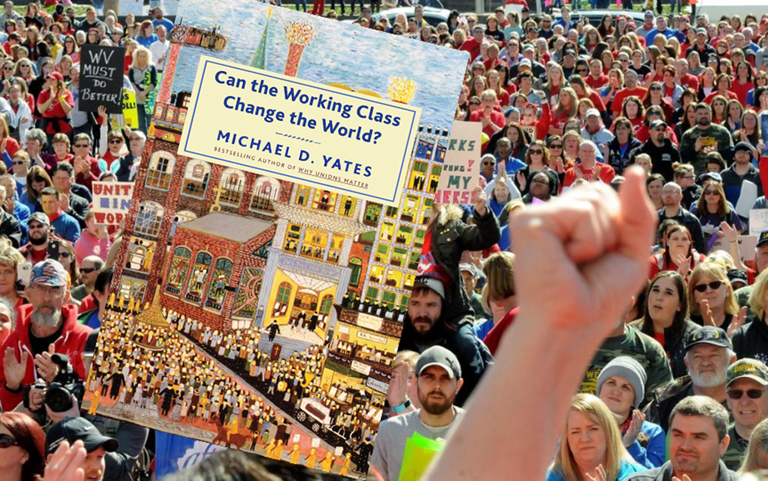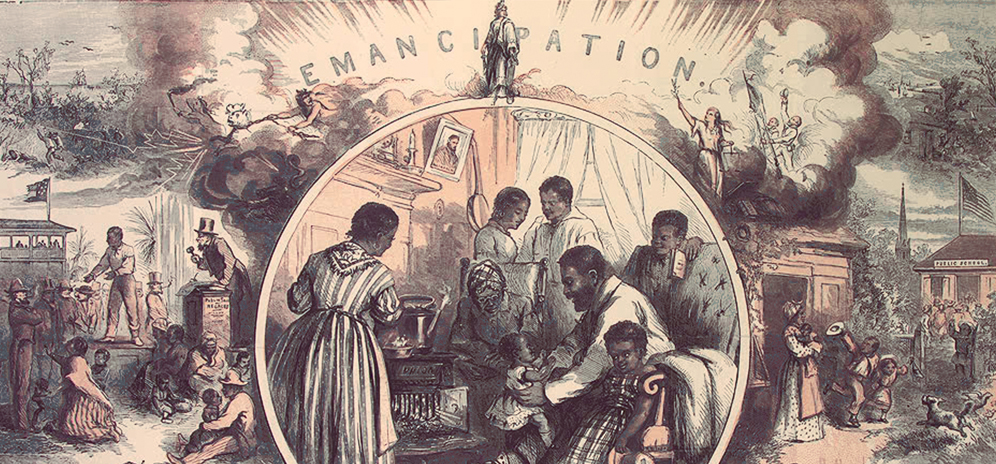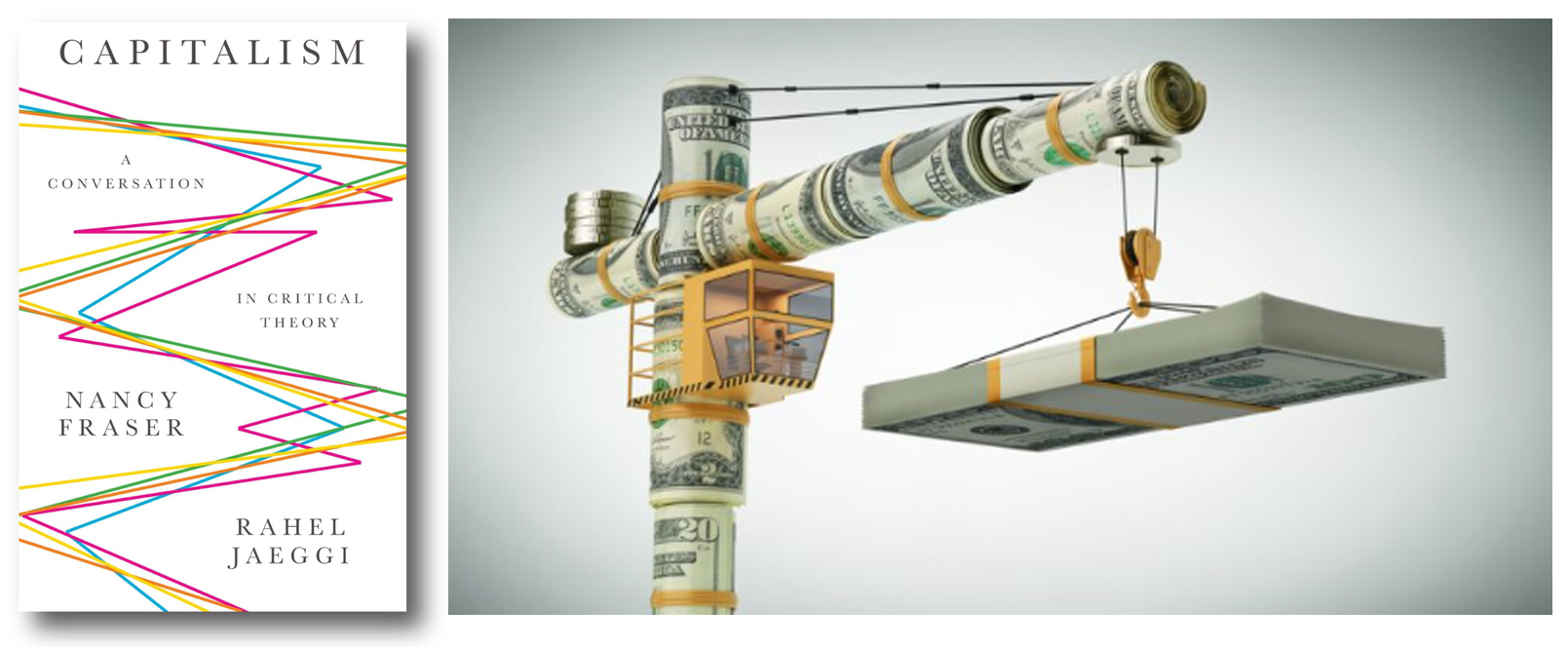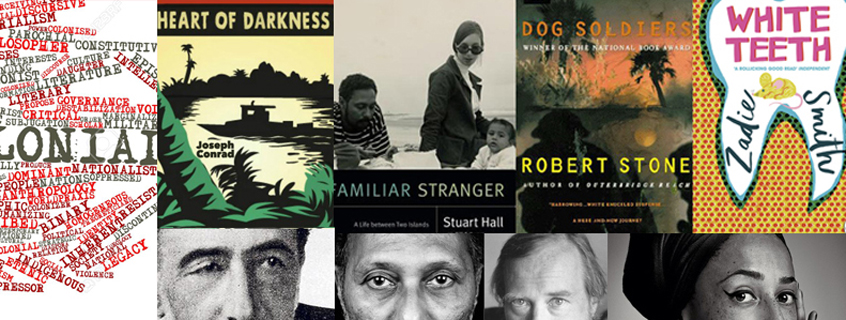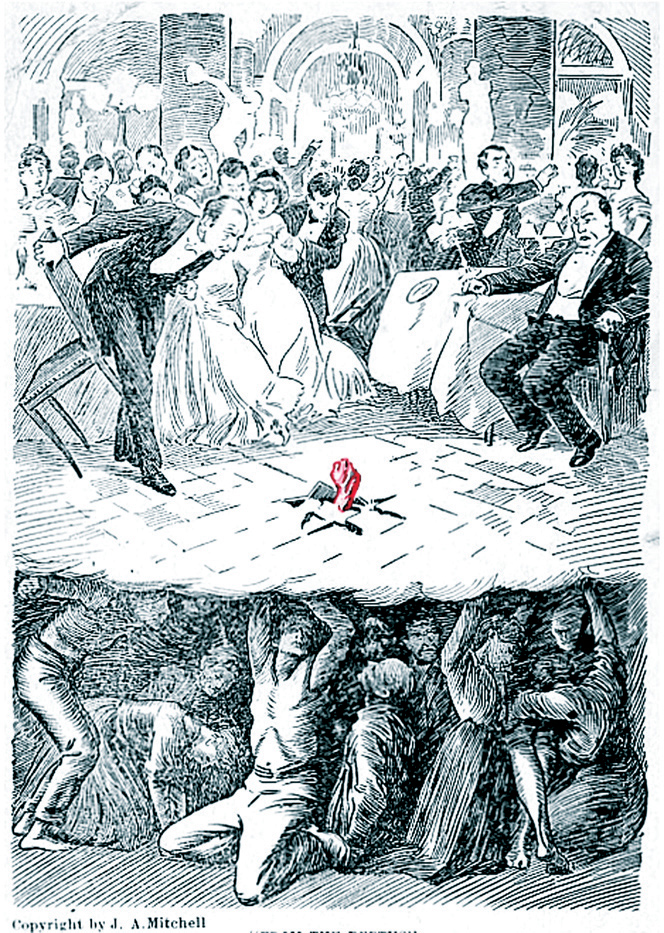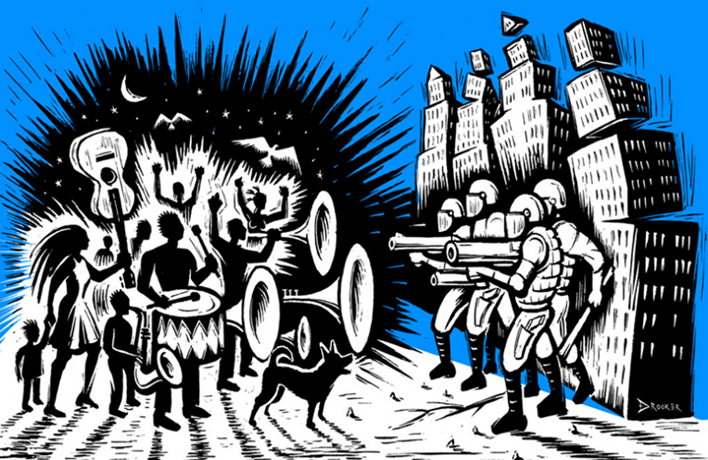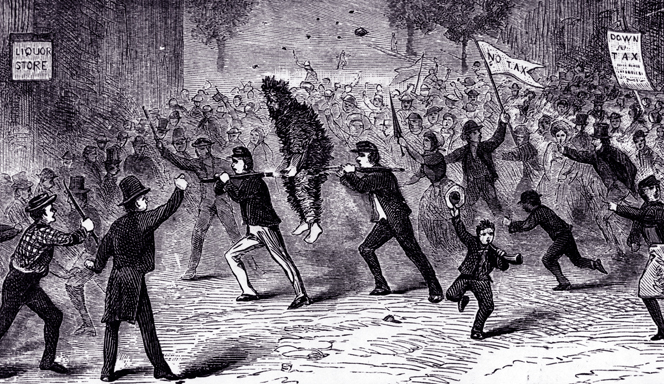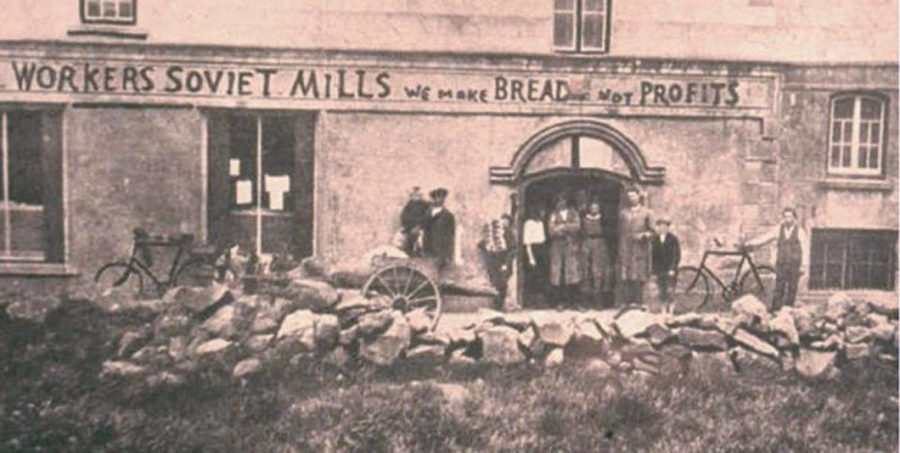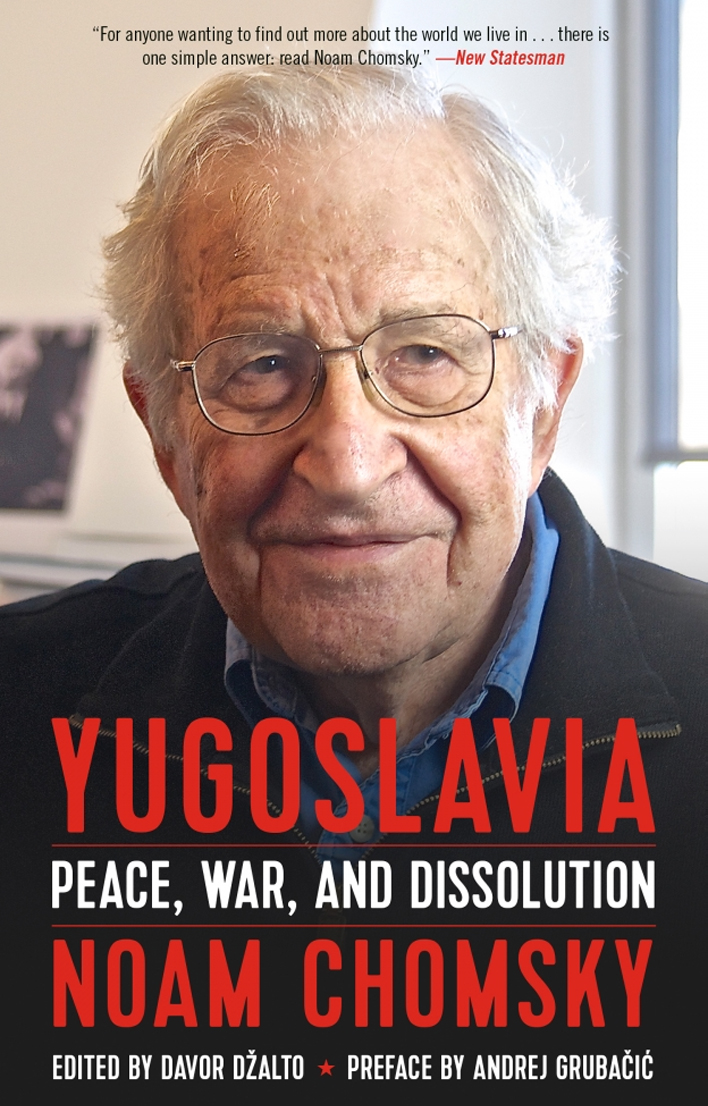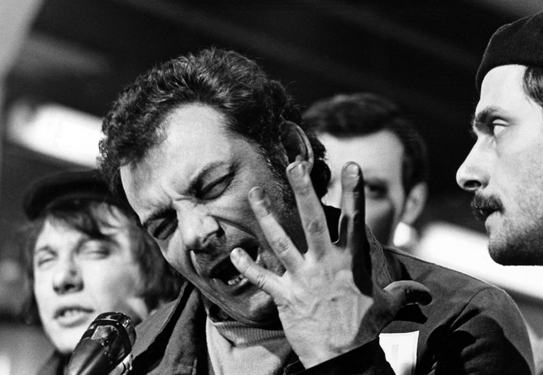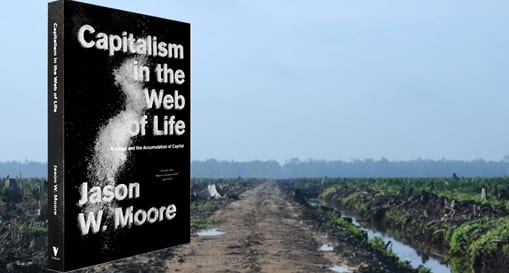Calendar of Events
S Sun
M Mon
T Tue
W Wed
T Thu
F Fri
S Sat
0 events,
2 events,
Can the Working Class Change the World?
Can the Working Class Change the World?
Marx argued, because capitalism is the apotheosis of class society, it must be the last class society: it must, therefore, be destroyed. And only the working class, said Marx, is capable of doing that.
Black Reconstruction
Black Reconstruction
THIS SERIES HAS BEEN EXTENDED TO MAY 20!
...the great social revolution of that momentous period following the Civil War was surely the “reconstruction” of social relations in the former slave states. In his groundbreaking study (1935), W.E.B. DuBois reveals that this social revolution was both initiated by slaves in the midst of the war and carried through by the emancipated Black population during and after the period when federal troops occupied the former Confederate states.
0 events,
0 events,
2 events,
Capitalism: Causes, Conditions, Consequences … and Beyond
Capitalism: Causes, Conditions, Consequences … and Beyond
Join us for a close reading of Capitalism: A Conversation in Critical Theory which shows how different historical regimes of capitalism have relied on institutional separations between economy and polity, production and social reproduction, and human and non-human nature. Interaction between these domains is periodically readjusted in response to crises and upheavals.
Globalization and Writing
Globalization and Writing
Unwilling, or unable to conform and accept lesser positions in their societies, they remain within their marginality and write their unease in novels which give readers an alternative report of the results of colonization both abroad where the EuroAmerican capitalists have colonized and what consequences that colonization has made for life in the their countries of origin.
0 events,
1 event,
Capital, Volume 1
Capital, Volume 1
Karl Marx’s Capital remains the fundamental text for understanding how capitalism works. By unraveling the commoditized forms of our interactions with nature and each other, it provides tools to understand capitalism’s astounding innovativeness and productivity, intertwined with growing inequality and misery, alienation, stunting of human potential, and ecological destruction all over the globe.
0 events,
2 events,
Black Reconstruction
Black Reconstruction
THIS SERIES HAS BEEN EXTENDED TO MAY 20!
...the great social revolution of that momentous period following the Civil War was surely the “reconstruction” of social relations in the former slave states. In his groundbreaking study (1935), W.E.B. DuBois reveals that this social revolution was both initiated by slaves in the midst of the war and carried through by the emancipated Black population during and after the period when federal troops occupied the former Confederate states.
Can the Working Class Change the World?
Can the Working Class Change the World?
Marx argued, because capitalism is the apotheosis of class society, it must be the last class society: it must, therefore, be destroyed. And only the working class, said Marx, is capable of doing that.
0 events,
0 events,
2 events,
Capitalism: Causes, Conditions, Consequences … and Beyond
Capitalism: Causes, Conditions, Consequences … and Beyond
Join us for a close reading of Capitalism: A Conversation in Critical Theory which shows how different historical regimes of capitalism have relied on institutional separations between economy and polity, production and social reproduction, and human and non-human nature. Interaction between these domains is periodically readjusted in response to crises and upheavals.
Globalization and Writing
Globalization and Writing
Unwilling, or unable to conform and accept lesser positions in their societies, they remain within their marginality and write their unease in novels which give readers an alternative report of the results of colonization both abroad where the EuroAmerican capitalists have colonized and what consequences that colonization has made for life in the their countries of origin.
0 events,
2 events,
Capital, Volume 1
Capital, Volume 1
Karl Marx’s Capital remains the fundamental text for understanding how capitalism works. By unraveling the commoditized forms of our interactions with nature and each other, it provides tools to understand capitalism’s astounding innovativeness and productivity, intertwined with growing inequality and misery, alienation, stunting of human potential, and ecological destruction all over the globe.
Premonitions
Premonitions
Thompson combines scholarship and grassroots grit to disabuse us of cherished certainties. Whether uncovering the unrealized promise buried in mainstream cultural offerings or tracing our course toward the moment of reckoning ahead, the essays in Premonitions are both practical investigations and provocations.
0 events,
2 events,
Black Reconstruction
Black Reconstruction
THIS SERIES HAS BEEN EXTENDED TO MAY 20!
...the great social revolution of that momentous period following the Civil War was surely the “reconstruction” of social relations in the former slave states. In his groundbreaking study (1935), W.E.B. DuBois reveals that this social revolution was both initiated by slaves in the midst of the war and carried through by the emancipated Black population during and after the period when federal troops occupied the former Confederate states.
Early American Resistance to Hamilton’s Capitalist Policies
Early American Resistance to Hamilton’s Capitalist Policies
The concentration of economic power was built into the Constitution and enhanced by Hamilton who imposed different forms of British capitalism upon the former colonies that had just rebelled against those policies.
0 events,
1 event,
Capitalism Discussion with Nancy Fraser
Capitalism Discussion with Nancy Fraser
... multidimensional critique of capitalism puts our present conjuncture into broader perspective, enabling diagnoses of the recent resurgence of right-wing populism and suggesting what is required of a viable Left alternative.
2 events,
Capitalism: Causes, Conditions, Consequences … and Beyond
Capitalism: Causes, Conditions, Consequences … and Beyond
Join us for a close reading of Capitalism: A Conversation in Critical Theory which shows how different historical regimes of capitalism have relied on institutional separations between economy and polity, production and social reproduction, and human and non-human nature. Interaction between these domains is periodically readjusted in response to crises and upheavals.
Globalization and Writing
Globalization and Writing
Unwilling, or unable to conform and accept lesser positions in their societies, they remain within their marginality and write their unease in novels which give readers an alternative report of the results of colonization both abroad where the EuroAmerican capitalists have colonized and what consequences that colonization has made for life in the their countries of origin.
0 events,
2 events,
Capital, Volume 1
Capital, Volume 1
Karl Marx’s Capital remains the fundamental text for understanding how capitalism works. By unraveling the commoditized forms of our interactions with nature and each other, it provides tools to understand capitalism’s astounding innovativeness and productivity, intertwined with growing inequality and misery, alienation, stunting of human potential, and ecological destruction all over the globe.
Celebrate the Limerick Soviet of 1919
Celebrate the Limerick Soviet of 1919
The seismic tremors that the October Revolution sent through Germany, Hungary and Italy are well known to students of the post-World War One Europe. Less familiar is the fact that the revolution’s ripple effects were felt as far to the west as Ireland. This April will mark the centennial of an episode in Irish revolutionary history known at the time—and since—as the Limerick Soviet.
0 events,
2 events,
Black Reconstruction
Black Reconstruction
THIS SERIES HAS BEEN EXTENDED TO MAY 20!
...the great social revolution of that momentous period following the Civil War was surely the “reconstruction” of social relations in the former slave states. In his groundbreaking study (1935), W.E.B. DuBois reveals that this social revolution was both initiated by slaves in the midst of the war and carried through by the emancipated Black population during and after the period when federal troops occupied the former Confederate states.
Early American Resistance to Hamilton’s Capitalist Policies
Early American Resistance to Hamilton’s Capitalist Policies
The concentration of economic power was built into the Constitution and enhanced by Hamilton who imposed different forms of British capitalism upon the former colonies that had just rebelled against those policies.
0 events,
0 events,
1 event,
Globalization and Writing
Globalization and Writing
Unwilling, or unable to conform and accept lesser positions in their societies, they remain within their marginality and write their unease in novels which give readers an alternative report of the results of colonization both abroad where the EuroAmerican capitalists have colonized and what consequences that colonization has made for life in the their countries of origin.
0 events,
2 events,
Capital, Volume 1
Capital, Volume 1
Karl Marx’s Capital remains the fundamental text for understanding how capitalism works. By unraveling the commoditized forms of our interactions with nature and each other, it provides tools to understand capitalism’s astounding innovativeness and productivity, intertwined with growing inequality and misery, alienation, stunting of human potential, and ecological destruction all over the globe.
Noam Chomsky’s Yugoslavia: Peace, War, and Dissolution
Noam Chomsky’s Yugoslavia: Peace, War, and Dissolution
Noam Chomsky’s articles, public talks, and correspondence have provided a critical voice on political and social issues crucial not only to the region but the entire international community, including "humanitarian intervention," the relevance of international law in today’s politics, media manipulations, and economic crisis as a means of political control.
0 events,
2 events,
Black Reconstruction
Black Reconstruction
THIS SERIES HAS BEEN EXTENDED TO MAY 20!
...the great social revolution of that momentous period following the Civil War was surely the “reconstruction” of social relations in the former slave states. In his groundbreaking study (1935), W.E.B. DuBois reveals that this social revolution was both initiated by slaves in the midst of the war and carried through by the emancipated Black population during and after the period when federal troops occupied the former Confederate states.
Early American Resistance to Hamilton’s Capitalist Policies
Early American Resistance to Hamilton’s Capitalist Policies
The concentration of economic power was built into the Constitution and enhanced by Hamilton who imposed different forms of British capitalism upon the former colonies that had just rebelled against those policies.
0 events,
0 events,
1 event,
Globalization and Writing
Globalization and Writing
Unwilling, or unable to conform and accept lesser positions in their societies, they remain within their marginality and write their unease in novels which give readers an alternative report of the results of colonization both abroad where the EuroAmerican capitalists have colonized and what consequences that colonization has made for life in the their countries of origin.
1 event,
The Working Class Goes to Heaven
The Working Class Goes to Heaven
This March the New York City left has the opportunity to come together and meet to watch and then discuss this film written, then filmed, edited and released as a film during the period of widespread working class militant activity throughout Italy—1971 still very warm following the Hot Autumn period of 1979. Petri and Volante step up and raise the stakes beyond their earlier collaboration, Investigation of a Citizen Above Suspicion.
1 event,
Capital, Volume 1
Capital, Volume 1
Karl Marx’s Capital remains the fundamental text for understanding how capitalism works. By unraveling the commoditized forms of our interactions with nature and each other, it provides tools to understand capitalism’s astounding innovativeness and productivity, intertwined with growing inequality and misery, alienation, stunting of human potential, and ecological destruction all over the globe.
0 events,
2 events,
Black Reconstruction
Black Reconstruction
THIS SERIES HAS BEEN EXTENDED TO MAY 20!
...the great social revolution of that momentous period following the Civil War was surely the “reconstruction” of social relations in the former slave states. In his groundbreaking study (1935), W.E.B. DuBois reveals that this social revolution was both initiated by slaves in the midst of the war and carried through by the emancipated Black population during and after the period when federal troops occupied the former Confederate states.
Early American Resistance to Hamilton’s Capitalist Policies
Early American Resistance to Hamilton’s Capitalist Policies
The concentration of economic power was built into the Constitution and enhanced by Hamilton who imposed different forms of British capitalism upon the former colonies that had just rebelled against those policies.
0 events,
0 events,
2 events,
Ecology, Capital and History
Ecology, Capital and History
Join us for a close reading of Jason W. Moore's Capitalism in the Web of Life. Using Moore's world-ecology framework, we will rethink the history of capitalism as a dialectic in which wealth, power, and nature interact to produce recurring crises - including today's troubling nexus of global warming, mass extinction, and the exceeding of planetary boundaries.
Globalization and Writing
Globalization and Writing
Unwilling, or unable to conform and accept lesser positions in their societies, they remain within their marginality and write their unease in novels which give readers an alternative report of the results of colonization both abroad where the EuroAmerican capitalists have colonized and what consequences that colonization has made for life in the their countries of origin.
0 events,
1 event,
Capital, Volume 1
Capital, Volume 1
Karl Marx’s Capital remains the fundamental text for understanding how capitalism works. By unraveling the commoditized forms of our interactions with nature and each other, it provides tools to understand capitalism’s astounding innovativeness and productivity, intertwined with growing inequality and misery, alienation, stunting of human potential, and ecological destruction all over the globe.

